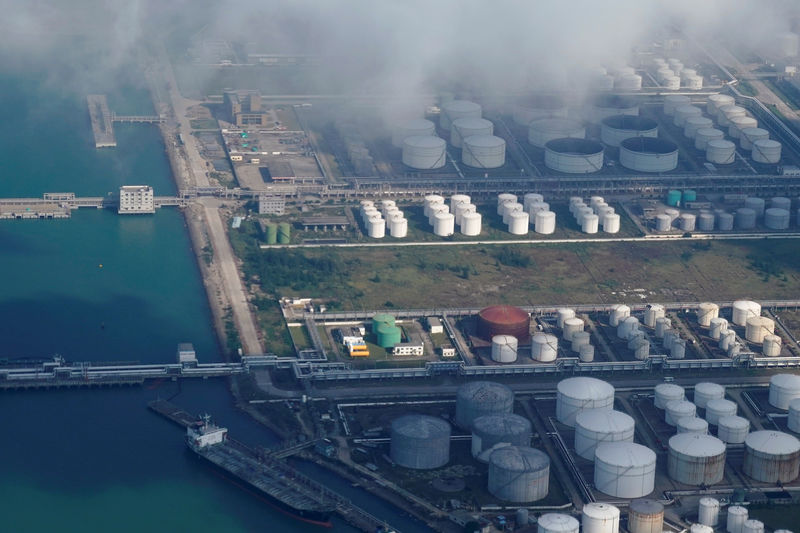By Chen Aizhu and Florence Tan
BEIJING/SINGAPORE (Reuters) - China's Iranian oil imports are set to rebound in December after two state-owned refiners in the world's largest oil importer began using the nation's waiver from U.S. sanctions on Iran, according to industry sources and data on Refinitiv Eikon.
Sinopec (SS:600028) resumed Iran oil imports shortly after Tehran's biggest crude buyer received its waiver in November, while China National Petroleum Corp (CNPC)will restart lifting from its own Iranian production in December, three sources with knowledge of the matter told Reuters.
Reuters reported in November that China's waiver on U.S. sanctions allows it to buy 360,000 barrels per day (bpd) of oil for 180 days.
Top Chinese energy group CNPC, which has invested billions of dollars in Iranian oilfields, is ready to load its full share of production from December, said an oil executive with direct knowledge of CNPC's Iran activities.
The executive, who asked not to be named, estimated CNPC will load at least two million barrels a month from December, doubling previous levels to help compensate for cuts made before sanctions on Iran's oil exports went into effect on Nov 5.
Before the waivers had been announced, Sinopec, Asia's largest oil refiner, had planned to stop loading Iran oil in November, but resumed imports within days of getting the exemption, a second source said, also asking to remain unnamed.
"We continued lifting Iranian oil in November because we received the waiver," the second source said.
Sinopec and CNPC will likely use up the 360,000 bpd of Iranian oil imports allowed to China under the waiver.
Another source said Iranian oil is "attractively priced" versus rival supplies from the Middle East.
For November and December, Iranian Heavy crude sold to Asia has been priced at $1.25 a barrel below Saudi's Arab Medium, a discount not seen since 2004.
The source also said many Chinese refiners were geared toward processing Iranian crude grades.
At 360,000 bpd, China's purchases would still be 45 percent less than the average 655,000 bpd imported during the January-September period.
GRAPHIC: China's crude oil imports from Iran - https://tmsnrt.rs/2QhuRLt
The rise in Iranian oil supply and surging production from the United States, Russia and OPEC countries has pulled down crude oil prices (LCOc1) by almost a third since October.
Ahead of the sanctions being implemented in early November, China's crude oil imports from Iran fell to 1.05 million tonnes (247,260 bpd) in October, the lowest since May 2010, Chinese customs data shows.
Data from Refinitiv Eikon, however, shows that 2.77 million tonnes of Iranian crude were discharged into Chinese ports in October, including into bonded storage tanks in Dalian.
GRAPHIC: Iran crude prices versus Saudi Arabia oil - https://tmsnrt.rs/2RG5Bv8
By December, China's Iran oil imports could reach almost 3 million tonnes, the Eikon data showed. A total 2.51 million tonnes of Iranian crude were discharged into Dalian in October and November, according to the data.
Other major Iranian oil buyers, including India, South Korea and Japan, are also increasing or resuming orders.

It is still not clear whether Iran will be able to export much oil after the U.S. sanctions waivers expire around the start of May.